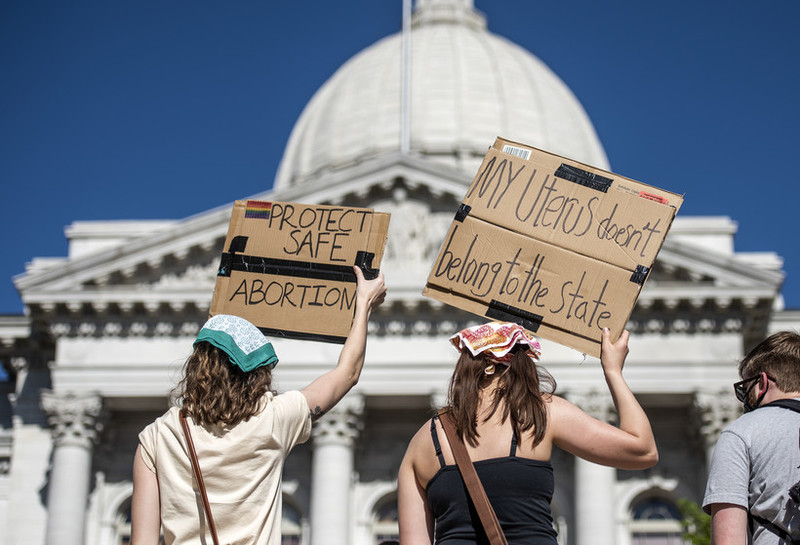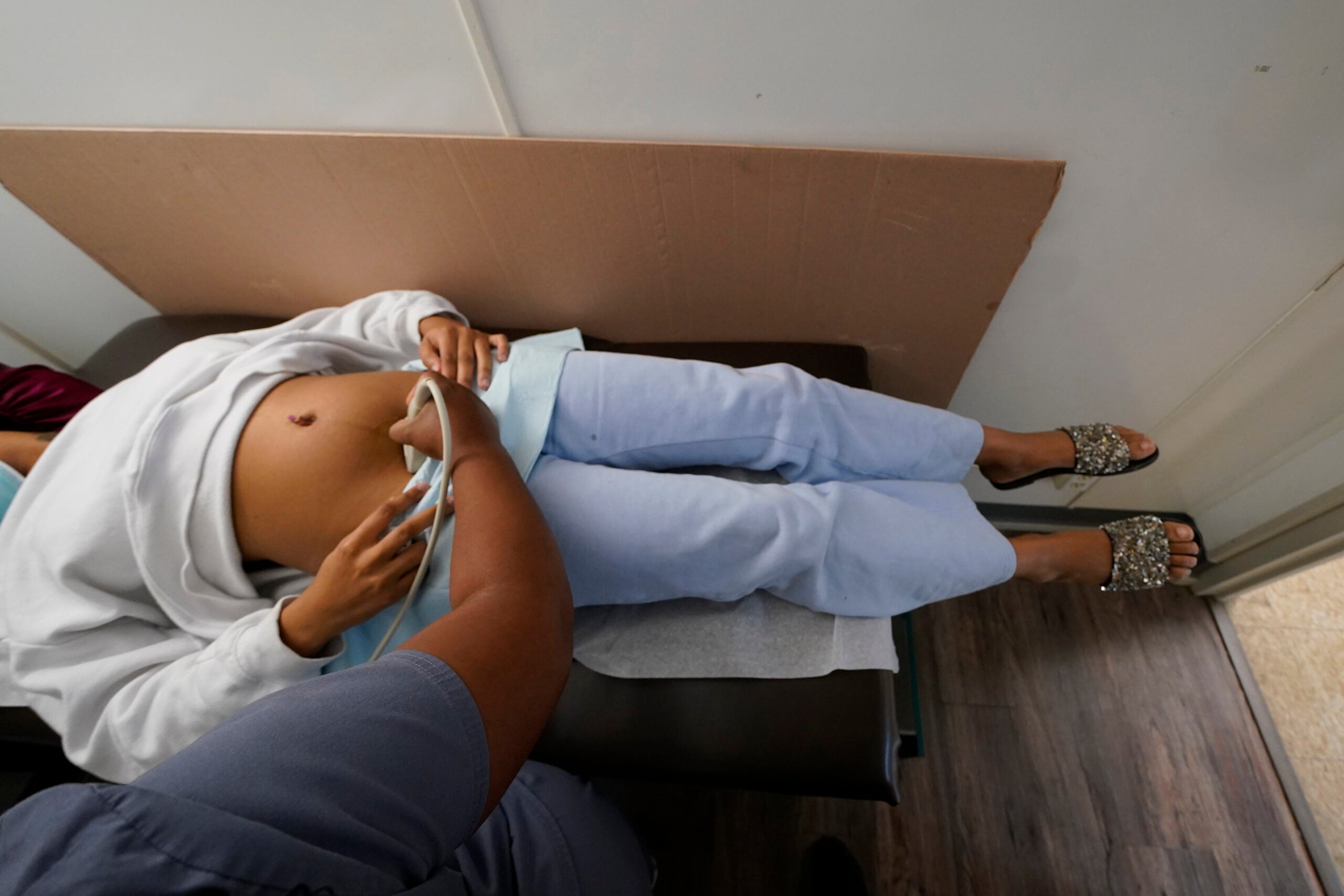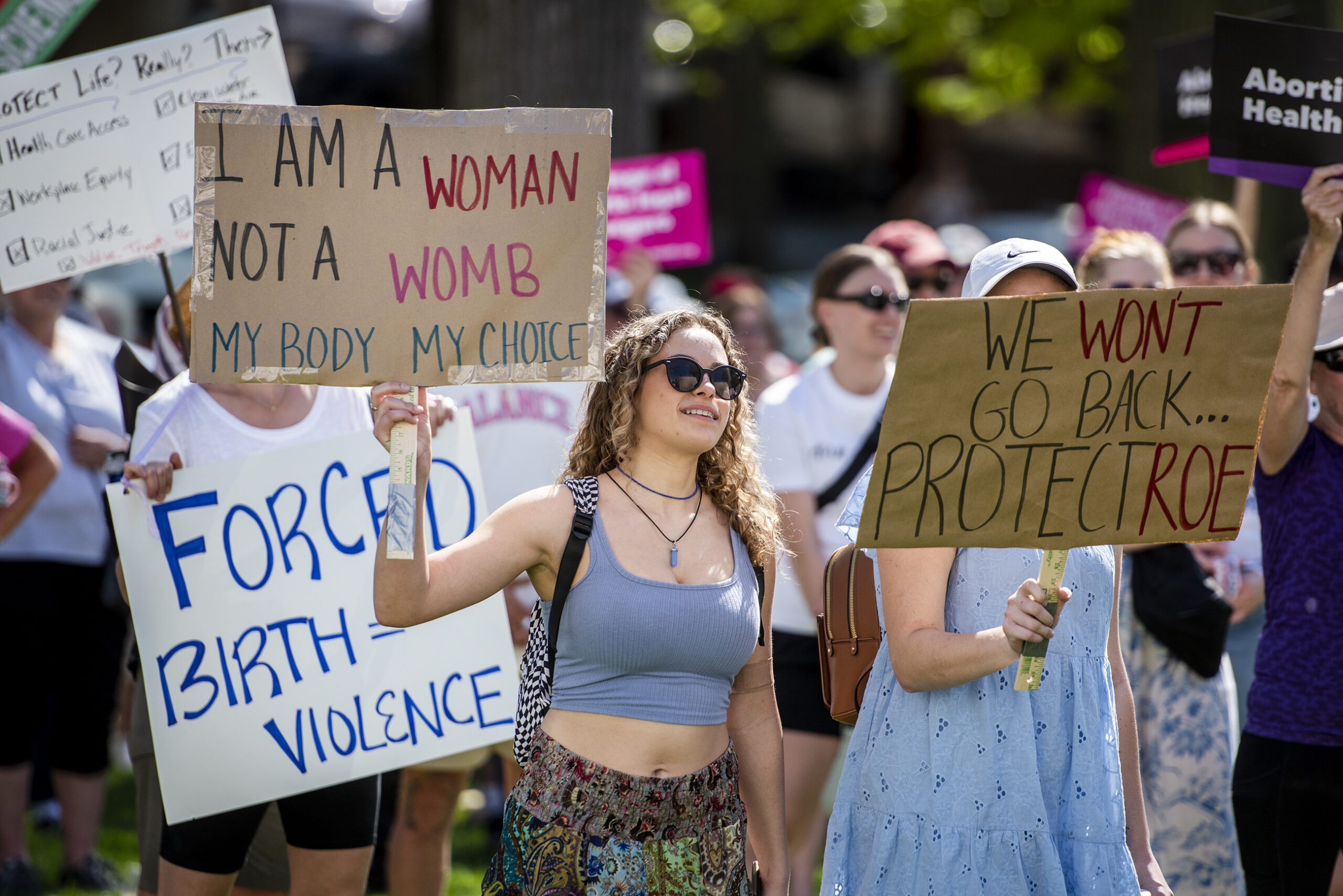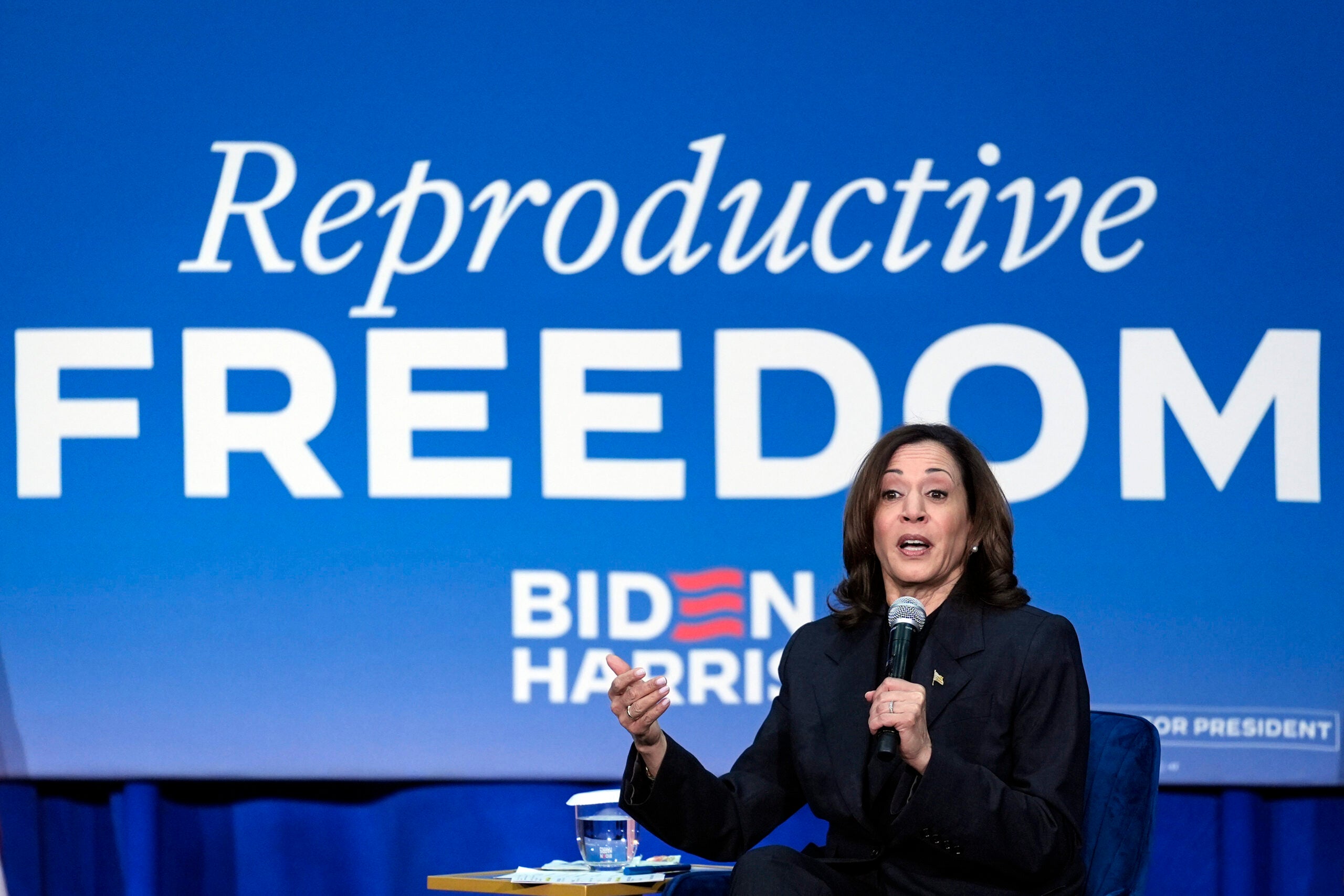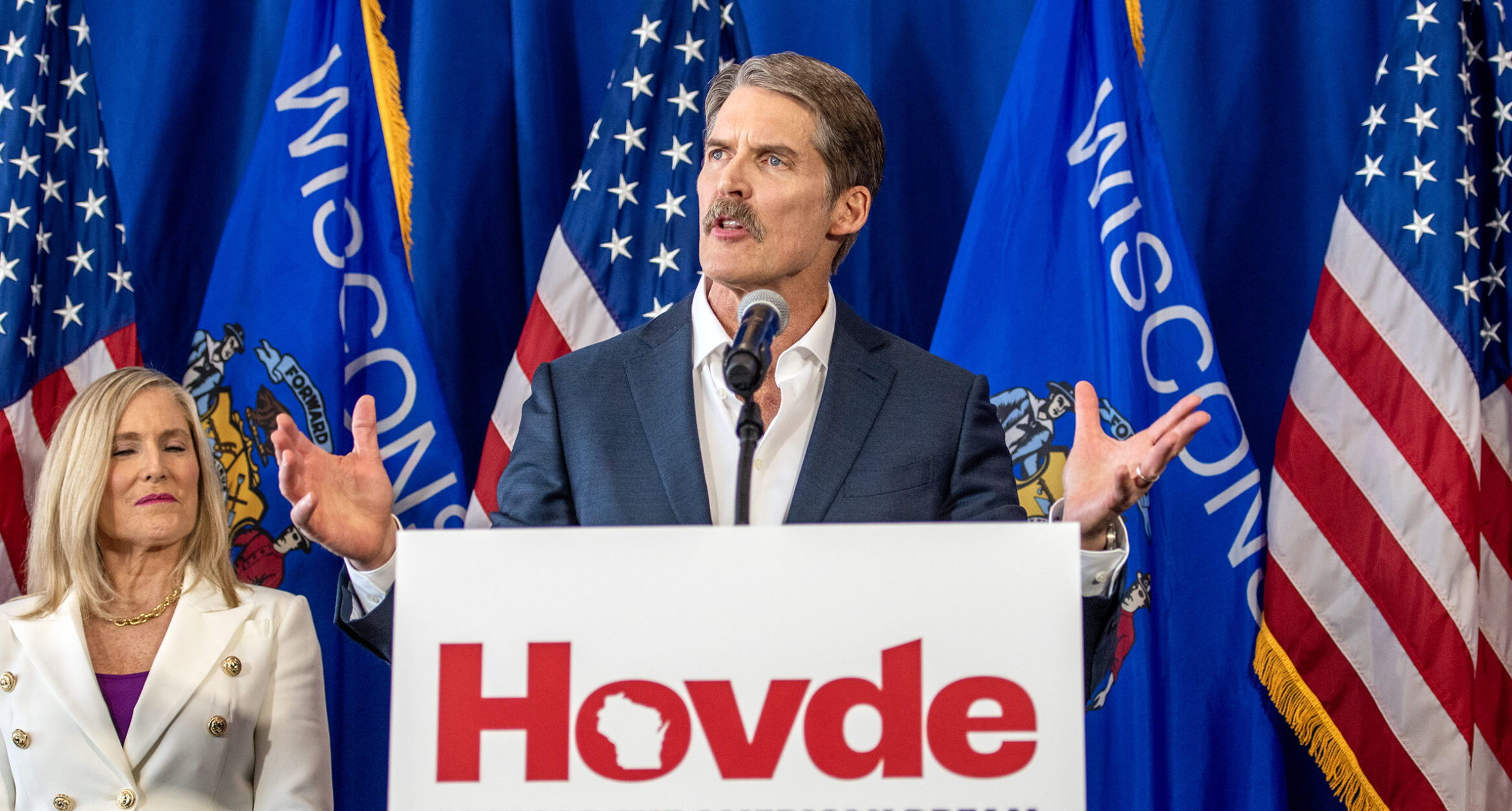Republican lawmakers on Wednesday unveiled legislation that would add exceptions to the state’s pre-Civil War abortion ban for some pregnancies resulting from rape or incest.
But almost immediately, the plan’s prospects of becoming law appeared doubtful, with Democrats saying it fell short of restoring the abortion rights lost when Roe v. Wade was overturned, and a key Republican acknowledging the measure lacked sufficient GOP support to pass the state Senate.
In a statement, the Senate Majority Leader — also a Republican — said he would not bring the bill to the floor for consideration.
Stay informed on the latest news
Sign up for WPR’s email newsletter.
The bill’s Republican backers, which include Assembly Speaker Robin Vos, R-Rochester, said it was a response to concerns they’ve heard from constituents since Roe was overturned.
Rep. Donna Rozar, R-Marshfield, the Assembly author of the plan, said it could protect the health of pregnant children or support people who currently have to go out of state to receive medical care for nonviable pregnancies.
“Is this an ideal bill? No, it’s not an ideal bill because we should be protecting all life — but this is not an ideal world,” she said. “This is a world where bad things happen, tragic things happen.”
Sen. Mary Felzkowski, R-Irma, lead author of the bill in the Senate, said there will be no requirement for rape and incest survivors to provide a police report to receive abortion care.
The bill would also allow first-trimester abortions in order to preserve the life of the pregnant person, updating the “life of a mother” exception in current law.
In addition, Republicans proposed another measure that would let people purchase birth control over the counter, which the bill’s author said would reduce unwanted pregnancies, and therefore reduce abortions.
Proposal comes less than 3 before Supreme Court election
Democrats called the proposals by Republicans a ploy to take voters’ concerns about abortion off the table in advance of Wisconsin’s consequential Supreme Court race in April.
“They’ve had years to repeal the criminal abortion ban. They haven’t done it,” said Sen. Kelda Roys, D-Madison. “This is a cynical, desperate last-minute attempt to try to sway a Supreme Court election.”
Gov. Tony Evers, a staunch supporter of abortion access, made clear he will not support any abortion-related legislation that does not fully overturn the state’s 1849 abortion ban.
“I won’t sign a bill that leaves Wisconsin women with fewer rights and freedoms than they had before the U.S. Supreme Court overturned Roe,” Evers said on Twitter.
In a statement, Ben Wikler, the chair of the Democratic Party of Wisconsin, called the bill a “publicity stunt.”
A majority of Wisconsinites — of all political backgrounds — believe abortion should be allowed in at least some instances. A September 2022 Marquette University Law Poll found more than 80 percent of Wisconsinites believe abortion should be legal in the case of rape or incest.
The legislation is being proposed three weeks out from a state Supreme Court election that may decide the future of abortion in the state. If Judge Janet Protasiewicz — the candidate favored by Democrats — is elected, it would give liberals a majority on the court at a time when justices are expected to hear a legal challenge to the state’s abortion ban. If a former Justice Dan Kelly — the candidate favored by Republicans — is elected, the court’s conservative majority would hold.
Broadly speaking, Wisconsin’s anti-abortion groups have said previously they do not support any exception for rape or incest to the state’s abortion ban.
In an interview with Wisconsin Public Radio Wednesday, Matt Sande, a lobbyist for Pro-Life Wisconsin, said his group strongly opposes both bills.
“It’s incredibly disappointing and disheartening,” he said. “We have an abortion ban in place. Again, we would like to strengthen it, make it more clear.”
Sande said his group would like to see a law that changes the current language around preserving the life of a pregnant person to also include preserving the pregnancy.
Opposition from anti-abortion groups could sink the plan in the Legislature. While Vos said the plan likely had the votes it needed to pass the state Assembly, Felzkowski said it did not have the enough GOP support to pass the Senate.
“Currently, we do not have the 17 votes on the exceptions bill,” Felzkowski said.
In a statement, Senate Majority Leader Devin LeMahieu, R-Oostburg, said he would not allow the bill to move forward for consideration, blaming Evers’ resistance.
“This is not a topic to use as a political football,” he said. “Further discussion on this specific proposal is unnecessary. The bill will not be considered on the floor of the Senate.”
Republicans propose bill to let pharmacists prescribe birth control
The other bill proposed Wednesday by Rep. Joel Kitchens, R-Sturgeon Bay, would allow pharmacists to prescribe — not just dispense — oral contraceptives to adults. This legislation has been proposed in the past, but has not passed.
Kitchens said unplanned pregnancies present a “staggering” cost to taxpayers, and can also upend the lives, education and economic opportunity for women who did not want to become pregnant.
He argued that requiring a doctor to prescribe birth control creates a barrier to access, and that his legislation would reduce the number of women who terminate unwanted pregnancies.
“The bottom line is that, as Republicans, we don’t want women to be faced with that choice of having to abort, and I think that this bill goes a long way toward that goal,” he said.
Democrats also pushed back against this proposal.
“It is Republicans who have stood in the way, time and again, in the Legislature and the courts and Congress, to try to restrict people’s access to birth control,” said Roys. “They know that everything is on the line in the Supreme Court race, and that is why they are pulling out all the stops.”
Evers’ office did not respond to a request for comment about the birth control bill.
Wisconsin Public Radio, © Copyright 2025, Board of Regents of the University of Wisconsin System and Wisconsin Educational Communications Board.
